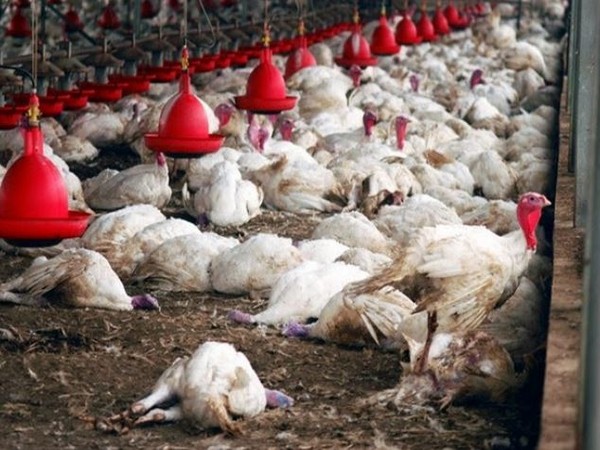
Bird flu response in Michigan sparks COVID-era worry on farms
Jul 11, 2024
Michigan [US], July 11: Some dairy farmers are resisting Michigan's nation-leading efforts to stop the spread of bird flu for fear their incomes will suffer from added costs and hurt rural America.
The government's restrictions, which include tracking who comes and goes from farms, are rekindling unwanted memories of COVID-19 in Martin and other small towns in central Michigan.
The state has two of the four known cases in humans, all dairy workers, since federal authorities confirmed the world's first case in U.S. cattle in late March. The state has tested more people than any of the 12 states with confirmed cases in cows, according to a Reuters survey of state health departments. Testing policies vary by state.
Public health experts fear the disease has the potential to turn into another pandemic just a few years after COVID-19.
As those worries mount, the acceptance and success or failure of Michigan's proactive response is being watched by other states looking for a roadmap that goes beyond federal containment recommendations.
More than a dozen interviews with Michigan producers, state health officials, researchers and industry groups, along with preliminary data, so far show limited dairy farmer participation in efforts to stem and study the virus.
In some cases, calls from local health officials go unanswered, money for dairy farm research is left unclaimed, and workers still milk cows without extra protective gear.
Brian DeMann, a dairy farmer from Martin, Michigan, said the outbreak and state's response recalls COVID-19.
The 37-year-old believes Michigan's rules to contain bird flu would be more widely accepted if they came as recommendations rather than requirements for farmers.
"Nobody knows if these things that we're being told to do are going to stop it," said DeMann, who echoed an uncertain view shared by other farmers. "Just like 2020, people didn't like to be told what to do."
This spring many U.S. dairy owners did not heed federal recommendations to offer more protective equipment to employees, according to farmers and workers. DeMann said he did not invest in new protective gear, such as masks, for his workers because it is unclear how the virus is spreading.
Source: Fijian Broadcasting Corporation






